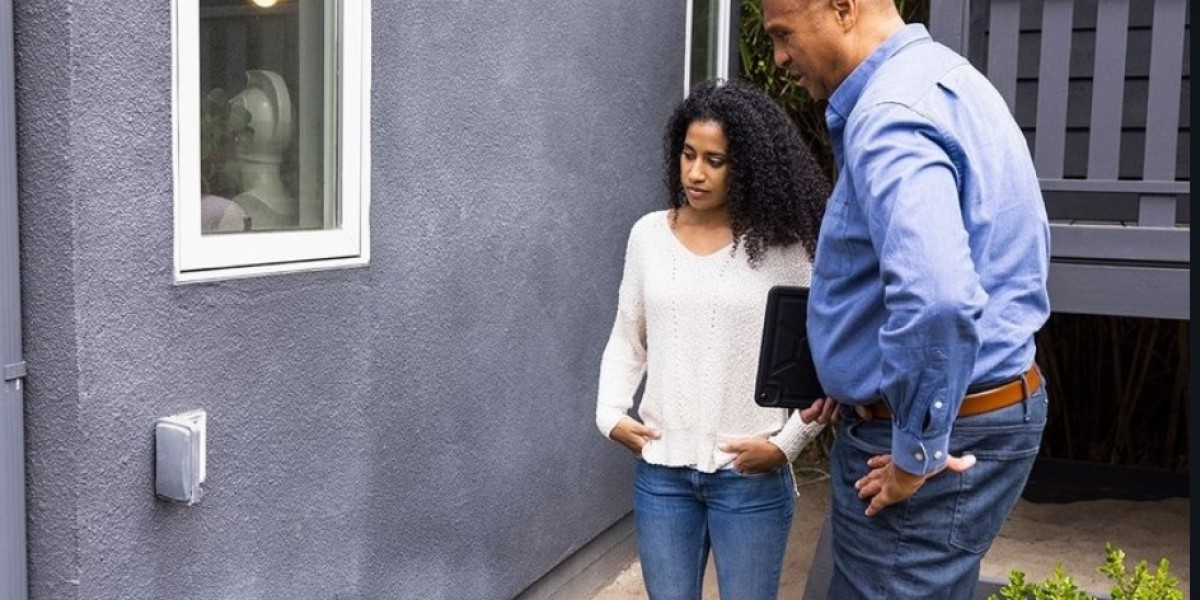When you're looking to purchase your dream home, there are many factors to consider—price, location, size, and condition. However, one aspect that many buyers overlook can have serious long-term consequences: radon levels. This odorless, colorless, and tasteless gas can cause severe health problems, including lung cancer if left undetected. In this article, we’ll delve into why radon testing by certified inspectors is crucial for homebuyers, helping you make informed decisions to protect your family’s health and your investment.
Understanding Radon: What Is It and Why Does It Matter?
Radon is a naturally occurring radioactive gas that is produced when uranium in the soil, rock, or water breaks down. It typically enters homes through cracks in floors, walls, or foundations, accumulating in lower levels such as basements and crawl spaces. While radon is a natural substance, it becomes dangerous when it accumulates in high concentrations indoors.
According to the U.S. Environmental Protection Agency (EPA), radon is the second leading cause of lung cancer in the United States, only behind smoking. Exposure to high levels of radon over a prolonged period significantly increases the risk of lung cancer, even for non-smokers.
The Hidden Dangers of Radon Exposure
One of the most alarming aspects of radon is that it’s virtually impossible to detect without specialized equipment. This is why radon testing by a certified inspector is so vital. When radon enters a home, it can accumulate undetected in the air, especially in areas like basements or the lower levels of buildings where people tend to spend less time. However, radon doesn’t need to be present in large quantities to pose a health risk.
Long-term exposure to elevated radon levels can lead to severe health issues, including:
- Lung cancer (the leading risk of radon exposure)
- Respiratory diseases
- Chronic cough
- Shortness of breath
- Coughing up blood
The EPA’s Recommended Radon Levels
The EPA has established an action level for radon in homes at 4 pCi/L (picocuries per liter). If radon levels exceed this threshold, it’s strongly recommended that homeowners take action to reduce the radon concentration. While radon exposure below 4 pCi/L is considered safer, there’s no known safe level of exposure, and the goal is always to reduce radon levels as much as possible.
Why Homebuyers Should Prioritize Radon Testing
As a homebuyer, your primary goal is to ensure that the home you’re purchasing is safe and healthy for your family. It’s easy to get swept up in the excitement of buying a new house, but radon testing should not be overlooked. Here are a few compelling reasons why it should be a priority:
1. Radon Exposure Isn’t Visible
As mentioned earlier, radon is an odorless, tasteless, and colorless gas, making it impossible to detect without specialized tools. This is why certified radon inspectors are essential—they use precise measuring devices to test for radon in a way that ordinary homebuyers or real estate agents simply cannot.
2. Health and Safety Risks
Radon exposure is a silent threat that can accumulate over time, putting your family’s health at significant risk. In fact, the EPA estimates that approximately 21,000 deaths per year in the U.S. are linked to radon-related lung cancer. Given the serious health risks, ensuring your new home has been tested for radon should be an essential part of your home-buying process.
3. Peace of Mind
Knowing that your home is free from high levels of radon can give you peace of mind, especially if you plan to live there long-term. With radon testing performed by a certified inspector, you can rest easy knowing that you’ve taken the necessary steps to safeguard your home and health.
4. Negotiation Power
If a radon test reveals that your potential home has elevated radon levels, you may have the opportunity to negotiate a lower purchase price or ask the seller to install radon mitigation systems. This can be an effective way to secure a better deal on a home while ensuring its safety.
The Role of Certified Radon Inspectors
You might wonder why it's so important to hire a certified radon inspector instead of trying to do it yourself. While DIY radon testing kits are available, they aren’t always as reliable or accurate as tests conducted by trained professionals. Here's why hiring a certified inspector is essential:
Expertise and Accuracy
Certified radon inspectors have the necessary training and expertise to properly assess radon levels in your home. They understand how to test in different areas and how to interpret the results to provide accurate, actionable information.
Specialized Equipment
Certified inspectors use state-of-the-art equipment, including continuous radon monitors (CRMs), to measure radon levels. These devices provide real-time data and can accurately assess radon concentrations over a specific period.
Compliance with Regulations
Certified inspectors are well-versed in local and national radon testing standards and regulations. This ensures that your test is conducted by the EPA guidelines and that the results are reliable and legally defensible.
Professional Recommendations
Based on the test results, certified radon inspectors can recommend whether mitigation measures are necessary. If high levels of radon are detected, they can provide expert advice on how to effectively reduce radon concentrations in your home.
What Does the Radon Testing Process Involve?
The process of radon testing is relatively straightforward but requires precision to ensure accurate results. Here’s a general outline of what to expect when you schedule a radon test:
Step 1: Choosing the Right Test
Your certified radon inspector will select the appropriate testing method based on your home’s size, construction type, and location. The two most common methods of testing are:
- Short-term testing (lasting from two to 90 days)
- Long-term testing (lasting more than 90 days)
Short-term tests are typically faster and less expensive, but long-term tests provide a more accurate representation of radon levels over time.
Step 2: Conducting the Test
The inspector will place radon detectors in the most likely areas of radon accumulation, such as basements or lower floors. During this time, windows and doors should remain closed to avoid interference with the test. The inspector may also recommend leaving the house unoccupied for the duration of the test to ensure the most accurate results.
Step 3: Analyzing the Results
Once the test is complete, the radon inspector will analyze the data collected and provide a report on the radon levels found in the home. If the levels exceed the EPA’s recommended action level, the inspector will suggest mitigation measures.
Step 4: Mitigation (If Necessary)
If radon levels are found to be elevated, the inspector will discuss options for reducing the radon concentration, such as installing a radon mitigation system. These systems typically involve the installation of a vent pipe and fan to draw radon gas out of the home and expel it safely into the air.
Cost of Radon Testing and Mitigation
While the cost of radon testing can vary based on your location and the size of the home, it’s generally an affordable investment considering the potential health risks involved. Testing typically costs between $100 and $300, and many homebuyers find that this small expense is well worth the peace of mind it brings.
If mitigation is necessary, costs can range from $800 to $2,500, depending on the complexity of the system and the size of the home. While this may seem like a significant investment, it’s a crucial step in protecting your family’s health in the long run.
Conclusion: The Importance of Radon Testing for Homebuyers
As a homebuyer, you want to make sure your investment is sound, and most importantly, that it’s safe for your family. Radon testing by a certified inspector should be an essential part of the home-buying process. This simple, yet crucial step can help you avoid the dangers of radon exposure and ensure that you’re making a healthy, informed decision for your future. Don’t let the silent threat of radon jeopardize your new home—make radon testing a priority today! For professional radon testing services, visit Colorado Springs Radon Mitigation.



